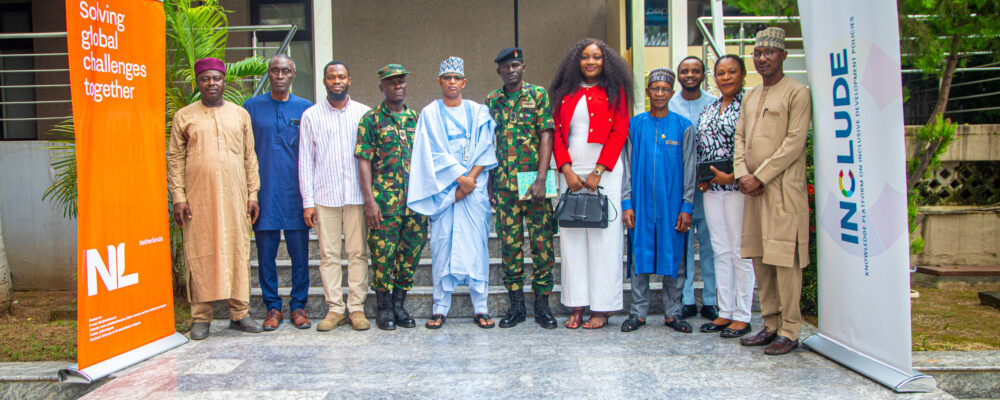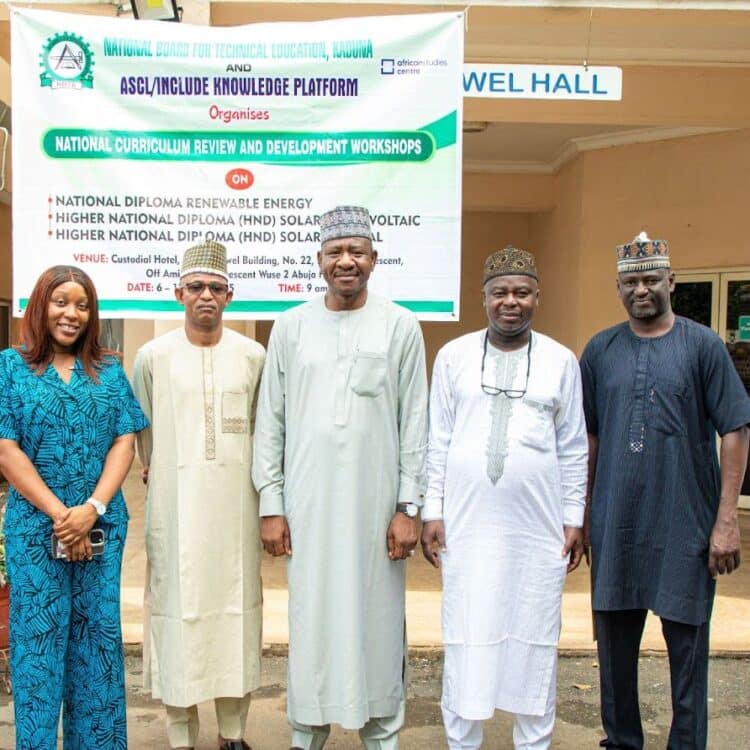
In August 2025, lecturers and technologists from polytechnics across Nigeria gathered at the in Abuja. They came to learn how to teach one of the world’s fastest-growing subjects: renewable energy. This gathering marked the start of a nationwide education reform to modernise Nigeria’s technical education system. This reform was supported by the National Board for Technical Education (NBTE), in collaboration with INCLUDE, the Kingdom of the Netherlands in Nigeria and RVO.
The reform updated the National Diploma (ND) in Renewable Energy, introduced new Higher National Diploma (HND) programmes in Solar PV and Solar Thermal Engineering Technology, and developed national standards for solar installation and maintenance. The aim was simple but significant to ensure that Nigeria’s teaching institutions produce graduates equipped for the green economy. A major part of realizing this national reform was achieved through three main sessions.
The first session, held in Abuja, brought together participants from the North Central and South East zones. Over two days, instructors explored new modules, built solar prototypes, and used digital design tools. For many, it was their first experience working hands-on with solar systems rather than just reading about them.
From Abuja, a second session was held in the south at Yaba College of Technology in Lagos, where participants from the South West and South South zones joined. The sessions were intensive but rewarding. During the session it was stressed that Nigeria’s energy transition would depend on turning classrooms into spaces for innovation and problem-solving. Trainers responded enthusiastically, some even working through their break to complete a technical exercise.
The final session took place in Kano, drawing participants from the North West and North East. Here, the focus expanded from technical training to entrepreneurship. During this session the connection between renewable energy education and livelihoods was highlighted. One lecturer shared how his students help maintain small solar farms in off-grid communities,gaining practical experience, earning income, and providing power to local households. His story captured the spirit of the reform: linking training directly to productive work.
Across the three sessions, more than 321 instructors were trained. For many institutions, it was the first coordinated exposure to the new renewable energy standards. The feedback was clear: the approach was practical, relevant, and long overdue.
Building on this progress, NBTE has directed all polytechnics to establish Skills Development Centres (SDCs). These centres will offer National Skills Qualifications (NSQs) alongside ND and HND programmes, open their doors to learners from the informal sector, and standardise renewable energy training nationwide. The goal is to align technical education with real market needs and ensure that graduates leave with skills that employers recognise.
The reform may sound modest, but its ambition is broad. It positions polytechnics not as peripheral institutions but as key players in Nigeria’s transition to a greener economy. By combining policy reform, institutional support, and teacher training, NBTE is building the foundation of a skills ecosystem that can sustain the energy transition for decades to come.
The initiative also underscores the value of partnership. INCLUDE, supported by the Dutch government, helped design and coordinate the training, drawing on lessons from similar programmes around the world. The collaboration shows how educators, policymakers, and development partners can achieve tangible, lasting impact.
For now, the results are not measured in megawatts or policy reports, but in classrooms, in the quiet confidence of teachers with new tools to share, and in the students who will learn from them. If Nigeria’s energy transition succeeds, it will be because such practical, steady changes took root first.

